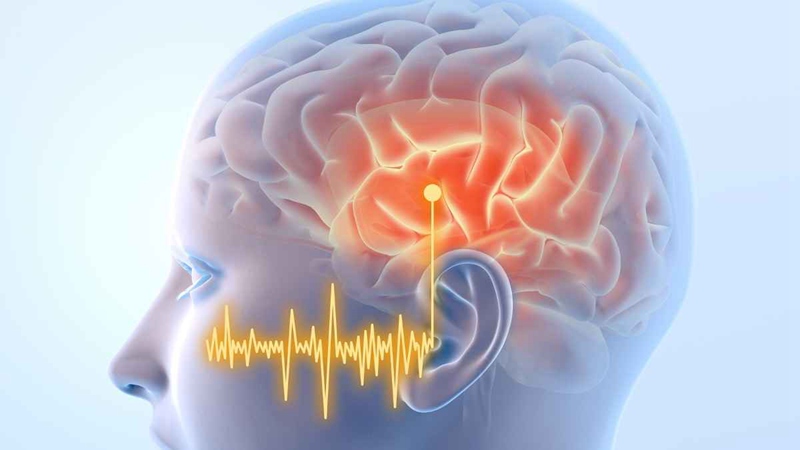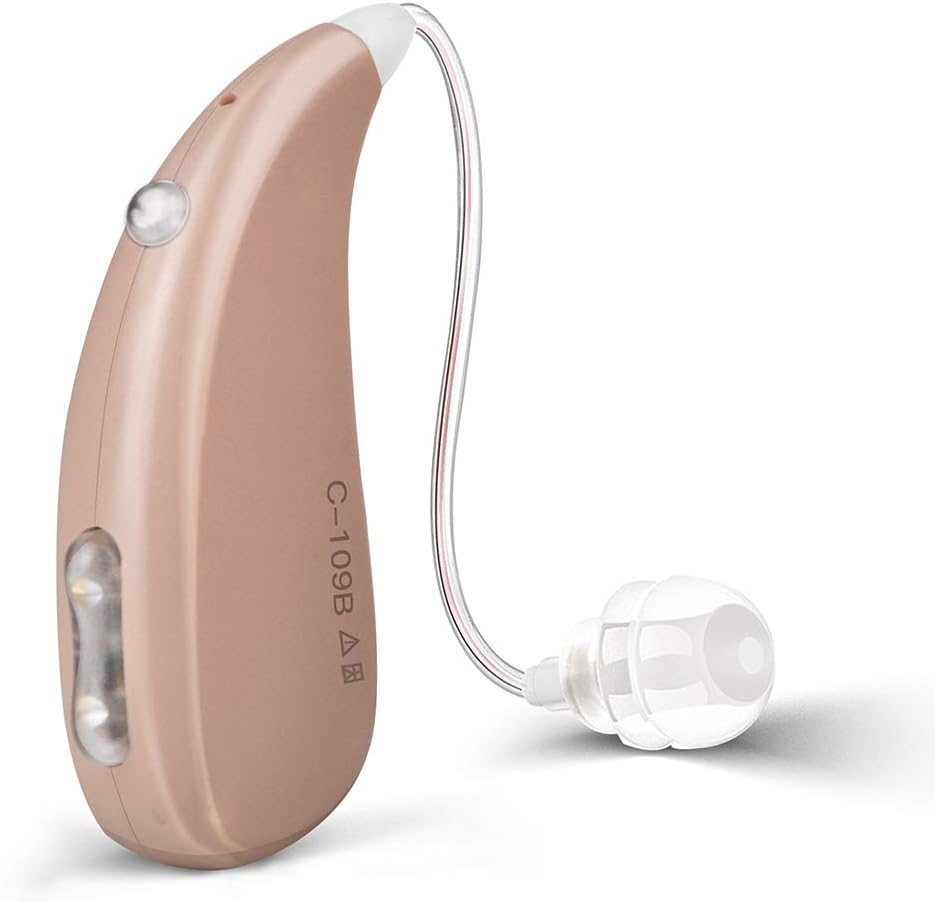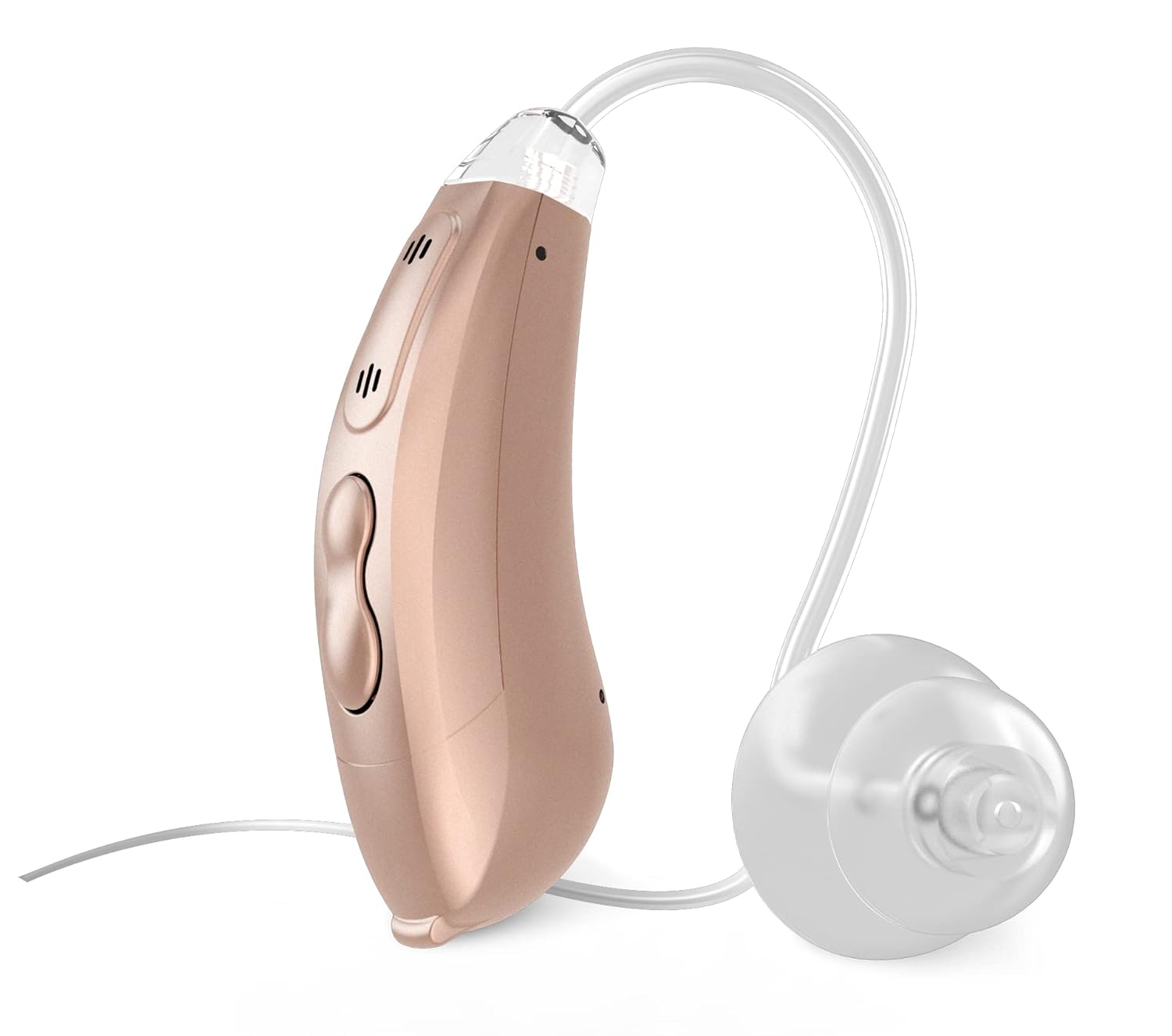
A new analysis1 from the long-running Framingham Heart Study suggests that people under age 70 with hearing loss who use hearing aids may significantly reduce their risk of developing dementia over the following decades. The research found a 61% lower risk of incident dementia among younger participants with hearing loss who reported wearing hearing aids compared to those with untreated hearing loss.
The finding adds to growing evidence2 that early diagnosis and treatment of hearing loss may play an important role in brain health—and underscores the importance of not delaying intervention.
The study, published today in the Letters section of JAMA Neurology, is authored by Lily Francis, MBBS, MPhil; Sudha Seshadri, MD; Lauren K. Dillard, PhD, AuD; Sharon G. Kujawa, PhD; D. Bradley Welling, MD, PhD; Richard L. Alcabes, MS; and Alexa S. Beiser, PhD.
Tracking Hearing and Cognition for 20 Years
The researchers examined two generations of the Framingham Heart Study, which has tracked thousands of participants for cardiovascular and neurological health since the late 1940s. The analysis included 2,953 adults aged 60 and older who had undergone standardized pure-tone hearing tests between 1977-1979 (original cohort) or 1995-1998 (offspring cohort). All participants were dementia-free at the start of the study and were followed for up to 20 years.
Hearing loss was defined as an average hearing threshold of at least 26 dB in the better ear. Participants were categorized into three groups:
- Hearing loss without hearing aids,
- Hearing loss with hearing aids, and
- No hearing loss.
Dementia diagnoses were made using DSM-5 criteria during follow-up. Researchers adjusted their analyses for age, sex, vascular risk factors, and education level.
A Clear Difference for Those Under Age 70
When the data were split by age, the association between hearing aid use and reduced dementia risk was striking—but only in people younger than 70 at the time of hearing evaluation.
Compared to younger participants with untreated hearing loss, those with hearing aids had a 61% lower risk of dementia, and those with no hearing loss had a 29% lower risk. Adjusting for stroke risk scores or educational level did not change the results.
However, in participants aged 70 or older, hearing aid use showed no statistically significant association with dementia risk. The authors note that the age-related difference may reflect the benefits of early intervention—either by treating hearing loss sooner in life or by preventing years of unmanaged auditory deprivation.
The results were surprising to coauthor Sudha Seshadri, MD, a behavioral neurologist at the Glenn Biggs Institute for Alzheimer’s and Neurodegenerative Diseases, which is part of the University of Texas Health Science Center in San Antonio. “We had expected the benefits would be greatest in older adults who have the highest risk of dementia,” she told HearingTracker. “Thinking back, we do find that the benefits of treating high blood pressure or diabetes are also greatest in mid-life.”

Sudha Seshadri, MD.
How This Fits with Previous Research
The Framingham results line up with two major threads in recent research into cognition and hearing status. The 2023 ACHIEVE randomized trial3 compared a best-practice hearing care intervention against a health-education control in older adults and found that hearing intervention slowed cognitive decline in participants at higher dementia risk. While ACHIEVE’s primary outcome in the full randomized cohort was nuanced, the pre-specified subgroup at elevated risk showed clinically meaningful benefit.
Similarly, a 2023 JAMA Neurology systematic review and meta-analysis4 pooling both observational and interventional studies concluded that hearing aids and cochlear implants are associated with slower cognitive decline and lower dementia risk. Together, these findings strongly suggest that treating hearing loss—especially before age 70—may help maintain cognitive function over time.
What makes the Framingham analysis notable is its decades-long follow-up, standardized audiometry, and age-stratified analysis. The association between hearing aid use and incident dementia was strong under age 70 but not significant at older ages—pointing toward the potential importance of addressing hearing loss earlier in life.
Why Might Early Treatment Matter?
Age-related hearing loss is one of the most common and modifiable risk factors for dementia.5 The mechanisms linking the two are still being studied, but proposed explanations include:
- Cognitive load – Hearing loss increases mental effort, pulling attention and memory resources away from other tasks. This long-term “listening effort” could wear down the brain’s capacity for thinking.
- Social isolation – Hearing loss leads to social withdrawal, loneliness, and depression—all factors associated with increased dementia risk.
- Shared pathology – Hearing loss and cognitive decline may stem from shared biological factors like vascular disease, inflammation, or genetics, rather than one causing the other.
A more recent hypothesis by Glick et al.6 proposes that the brain’s neuroplasticity and adaptation to hearing loss may have adverse effects, contributing to cognitive decline and dementia.
Cognitive decline or dementia could potentially be impacted by any or all of these factors. It’s conceivable that, by restoring clearer auditory input, hearing aids may reduce these risks—especially if used early enough to prevent long-term changes in brain structure and function.
The age-stratified pattern reinforces the idea that intervening earlier may blunt the mechanisms linking hearing loss to cognitive decline. In Framingham, participants under 70 with hearing loss who used hearing aids had a 61% lower risk of developing dementia compared to peers who did not use aids, while the association was not significant in those 70 and older. This result remained after adjusting for vascular risk factors and education, indicating that the benefit is not simply due to healthier baseline profiles.
Dr. Seshadri says, “The impact of correcting risk factors is, for most risk factors, greatest in midlife between ages 50-75. We do not believe that managing hearing loss is not useful in older adults in their 8th, 9th, or 10th decade, but the impact [relative to dementia] may be diluted by brain changes that have already occurred. Hearing loss should, for many reasons, including safety and concerns about social isolation, be looked for and, if found, addressed at any age.”
Practical Takeaways for Clinicians and Consumers
Despite mounting evidence, hearing aid uptake remains low. Only about 17% of people with moderate-to-severe hearing loss currently use hearing aids. Closing this gap through earlier hearing testing, counseling, and affordable access to technology could represent a meaningful and scalable way to reduce dementia risk at the population level.
For people diagnosed with hearing loss and their families, these data reinforce that well-fitted devices are not just about better communication today—they may also be an investment in long-term brain health, particularly when adopted before age 70.
“Hearing loss should not be treated as a mere inconvenience but as an important risk factor that needs to be addressed to ensure better health and lifespan,” says Dr. Seshadri.
Douglas Beck, AuD, an audiologist and expert on hearing loss and cognition who was not involved in this study, points to the various hypotheses for why hearing loss is associated with cognitive decline. He thinks it's possible that when people at risk for cognitive decline have hearing and vision problems that go untreated for decades, their brain (due to neuroplasticity) may recalibrate to the attenuated, distorted, and missing information.6
“Most hearing loss is neurodegenerative and will progress, which is why early diagnosis and treatment are the recommended goals, to intervene before the consequences are engaged,” says Beck. “Maintaining brain health depends to a large degree on the integrity of the primary senses. As such, the degraded sensory information may become their 'new normal' and may contribute to isolation, confusion, and a loss of confidence and self-esteem, and overall quality of life.
“As is true in all areas of medicine, it is easier to prevent a problem than to cure it,” he continues. “Comprehensive audiometric evaluations remain step one for helping to avoid problems such as social isolation, loss of communication opportunities with family and friends, stress, anxiety, depression secondary to hearing and listening problems, and, in at-risk people, cognitive decline.”

A comprehensive hearing evaluation is the first step to understanding and treating hearing loss.
The Framingham Study and Present Research's Limitations
The Framingham Heart Study, launched in 1948 in Framingham, Mass, is one of the world’s most influential long-term health studies. Initially designed to uncover risk factors for cardiovascular disease, it has since expanded to track neurological, metabolic, and other health outcomes across multiple generations of participants by combining decades of standardized medical testing with detailed follow-up.
The study includes a large, community-based sample that features objective hearing tests and dementia follow-up for up to 20 years, with adjustments for major confounding factors such as vascular risk and education. However, the present study’s authors note some limitations. Hearing aid use was assessed with a simple yes-or-no question, so the study couldn't determine how frequently or effectively participants used their devices. The analysis also couldn't fully establish whether the benefit was due to younger age at intervention, less severe hearing loss at baseline, or both. Additionally, socioeconomic differences—which are known to affect both access to hearing care and overall health—were not fully accounted for beyond education level.
Dr. Seshadri told HearingTracker that more clinical trials—like the ACHIEVE study—are needed to deepen our understanding of how hearing loss affects the brain. She stressed the importance of identifying the earliest brain changes linked to hearing loss in midlife, and of making hearing assessments a routine part of both brain health evaluations and general geriatric care.
References
- Francis L, Seshadri S, Dillard LK, et al. Self-reported hearing aid use and risk of incident dementia. JAMA Neurol. Published online Aug 18, 2025. doi: 10.1001/jamaneurol.2025.2713
- Beck DL, Darrow KN, Ballanchanda B, et al. Untreated hearing loss, hearing aids, and cognition: Correlational outcomes 2025. HearingTracker. Published online Feb 18, 2025.
- Lin FR, Pike JR, Albert MS, et al. (ACHIEVE Collaborative Research Group). Hearing intervention versus health education control to reduce cognitive decline in older adults with hearing loss in the USA (ACHIEVE): A multicentre, randomised controlled trial. Lancet. 2023 Sep 2;402(10404):786-797.
- Yeo BSY, Song HJJMD, Toh EMS, et al. Association of hearing aids and cochlear implants with cognitive decline and dementia: A systematic review and meta-analysis. JAMA Neurol. 2023;80:134-141.
- Livingston G, Huntley J, Liu KY, Costafreda SG, Selbæk G, Alladi S, et al. Dementia prevention, intervention, and care: 2024 report of the Lancet standing Commission. Lancet. 2024;404(10452):572-628.
- Glick HA, Beck DL, Darrow K, Trinh J. The cognitive maladaptation hypothesis: how sensory deprivation could contribute to cognitive decline. J Otolaryngol-ENT Res. 2025;17(2).







